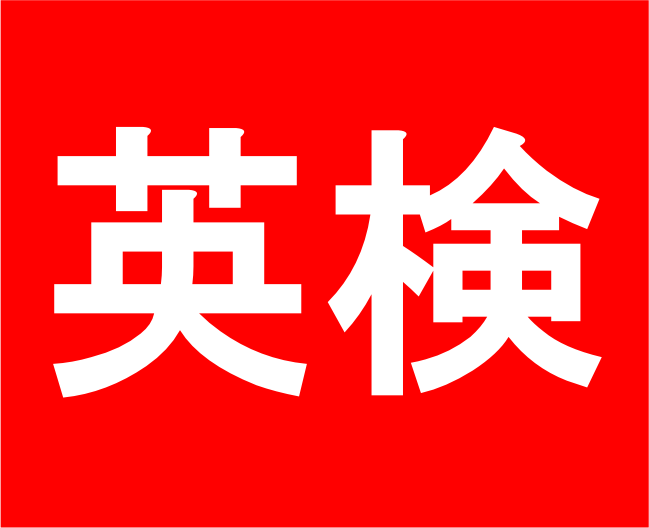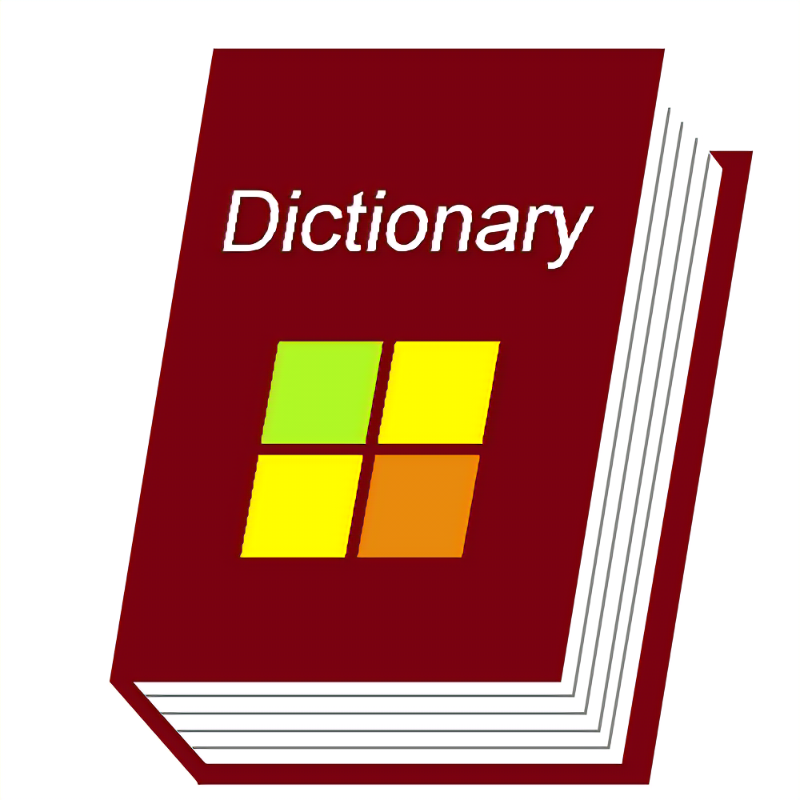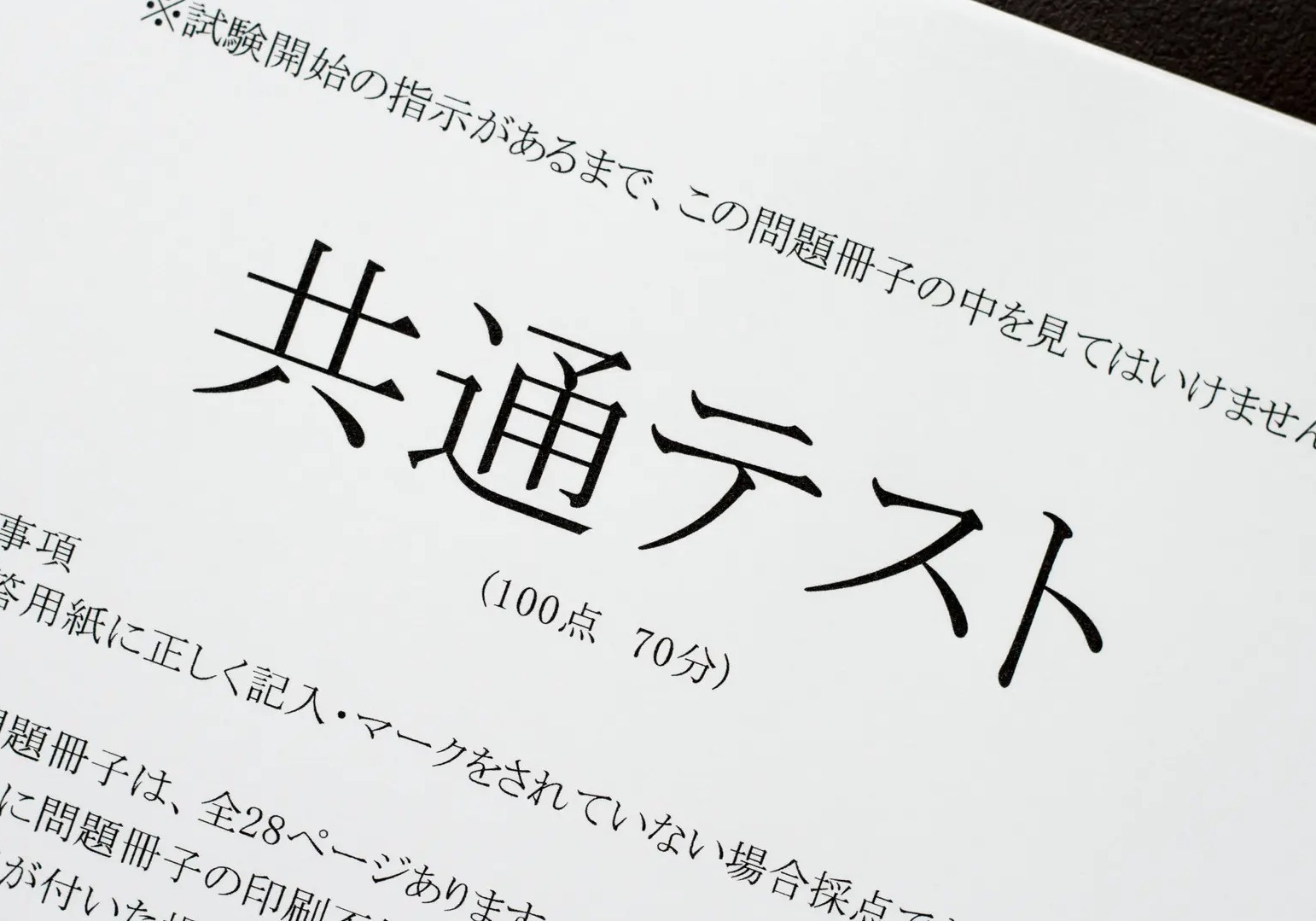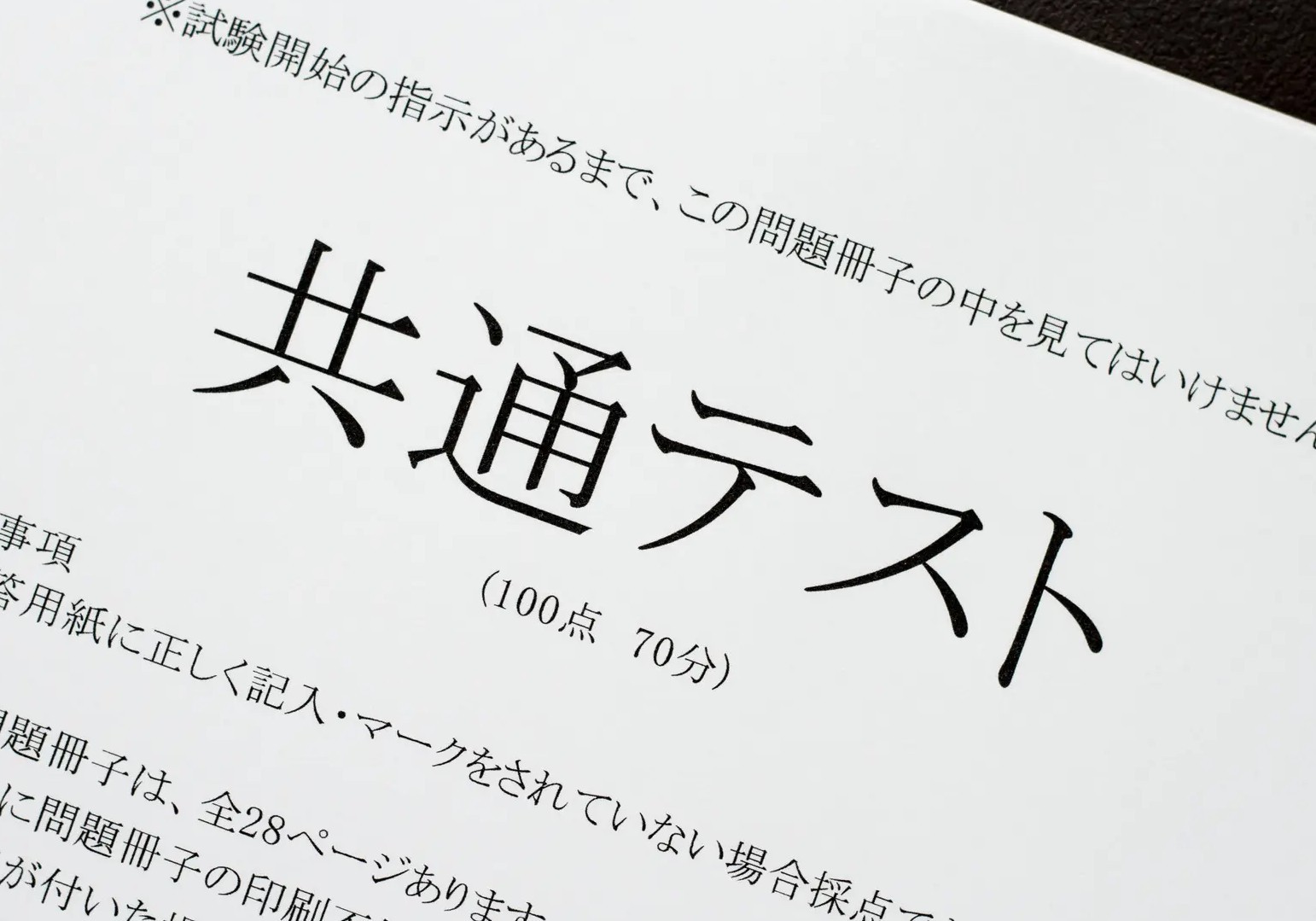コラム|嬉野市の【けんさん英語塾】で現地で使える英語力・英会話を身につけましょう!家庭教師としてご自宅や指定場所へお伺いする事も可能です。
コラム
-

- 英検要約0点連発問題について
- 英検の要約問題で0点が連発問題がYouTubeで話題に上がっていたので取り上げてみます。<div>今回の英検で要約問題で0点が頻発していたと知りました。<br><div><br></div><div>英検1級でも満点を取っていたことがある英語教育のスペシャリストでさえも要約問題で0点とされていたようでどうやらAIによる得点判定が導入されていることで文字数指定の範囲の中にまず収まっていないと内容云々以前に採点除外となる傾向があると知りました。決められた単語数の中で要約し、正しい文法で簡潔に答えるというのはかなり高い英語力が求められると思う一方で単語数の一点で得点を一方的に0としてしまうのは如何なものかなと疑問に思わざるをえません。</div></div><div><br></div><div>本来の英語能力を測定するという観点からだいぶ逸れてしまっているのではないかなと思います。大学受験生にとっては英検2級や準1級を取得すると入試の際に英語の得点に加点がされる大学もあるため英検取得が推奨されています。なので、今後は指定の単語数の範囲内で書ききるということが大切になると思われます。大学によってはTOEICスコアも採用されているところもあるので併用を検討しても良いかもしれません。ちなみに、佐賀大学は採用していないようです。</div><div><br></div><div>英語学習者にとっては単語数など気にせず楽しんで勉強して英作文をしていただけたらなと思います。</div><div>とは言え英検受験者は指定語彙数内で要約問題、エッセイ問題に取組まなければならないということですからたくさん書いて練習するしかないと思います。先ずは文字数をとりあえず気にせずに書いて、語彙数を後で調整して清書するというのが良いかもしれません。</div>
-

- 英語のビジネスメールの書き方
- <div><div><p dir="auto">英語には日本語のような尊敬語や謙譲語がないというわけではあり<wbr>ません。目上の人に対する話し方や取引先に依頼をするビジネスメ<wbr>ールでは注意すべき点が多々あります。</p><p dir="auto">例えばCan you send me an electronic copy of the contract document? これでも伝わりますが、ビジネスメールとなるとIt would be appreciated if you could send me an electronic copy of the contract document. みたいになります。</p></div></div><br><p dir="auto">意味は同じでもビジネスメールでは「直接性」<wbr>を一段階ぼかすのが英語の作法となります。</p><p dir="auto">整理して説明します。<br></p><br><hr><br><br><h2>① 2つの文の違い(ニュアンス)</h2><br><p><br></p><br><h3 dir="auto">ストレート(意味は通じる)</h3><br><p><br></p><blockquote>Can you send me an electronic copy of the contract document?</blockquote><p><br></p><br><ul><li><p>文法的に正しい</p></li><li><p>会話・社内・親しい取引先ならOK</p></li><li><p dir="auto">ただし外部向けだと少し命令っぽく響くことがあります。</p></li></ul><br><br><hr><br><br><h3 dir="auto"> ビジネス向け(間接的で丁寧)</h3><br><p><br></p><blockquote>It would be appreciated if you could send me an electronic copy of the contract document.</blockquote><p><br></p><br><ul><li><p>主語を you → it にして圧を下げている</p></li><li><p>「してもらえると助かります」という婉曲表現</p></li><li><p>定番中の定番</p></li></ul><br><p><br></p><p dir="auto">英語ビジネスでは “you” を主語にしない=礼儀</p><p dir="auto">という感覚です。</p><br><hr><br><br><h2>② よく使われる丁寧表現のバリエーション</h2><br><p><br></p><p>全部「送ってください」ですが、圧の弱さが違うだけです。</p><p><br></p><br><h3>丁寧だが自然(おすすめ)</h3><br><br><ul><li><p>Could you please send me an electronic copy of the contract?</p></li><li><p>Would you mind sending me an electronic copy of the contract?</p></li></ul><br><p><br></p><br><h3>かなりフォーマル</h3><br><br><ul><li><p>It would be appreciated if you could provide an electronic copy of the contract.</p></li><li><p>We would appreciate it if you could provide…</p></li></ul><br><p><br></p><br><h3>さらに事務的・公的</h3><br><br><ul><li><p>Please provide an electronic copy of the contract document.</p><p>(※命令文だがビジネスでは許容)</p></li></ul><br><br><hr><br><br><h2>③ なぜ “Would / Could / It would be appreciated” を使うのか</h2><br><p><br></p><p>英語圏では:</p><br><ul><li><p>Can you~? → 能力を聞いている形(できるか?)</p></li><li><p>Could you~? → 仮定法でワンクッション</p></li><li><p>It would be appreciated if… →</p><p dir="auto">誰が感謝するかをぼかして「個人感情」を消しています。</p></li></ul><br><p><br></p><p>つまり</p><p>依頼=命令にならないように文法で調整しているんです。</p><br><hr><br><br><h2>④ 実務で一番よく使われる自然文(超安全)</h2><br><p><br></p><p dir="auto">正直、現場ではこれが一番多いです。</p><p><br></p><blockquote>Could you please send me an electronic copy of the contract?</blockquote><p><br></p><p dir="auto">堅すぎず、失礼でもありません。</p><p dir="auto">英語を使った仕事をする場合は単に文法が正しいかだけではなく相<wbr>手に失礼となっていないか、<wbr>そういうところまで気を配る必要がありますね。</p>
-

- 名詞と動詞でアクセントが変わる単語
- 今回は同じスペルだけど名詞か動詞で発音する際のアクセントが異なる単語をまとめて紹介します。<div>実際、毎日英語を使っているとどっちだったか混乱するときがあります。</div><div>でもちゃんとルールがあるので覚えておけば大丈夫です。</div><div><br></div><div>名詞として使うときはアクセントは前、動詞として使うときはアクセントは後です。<br>これを意識して練習してみてください。中には意味が異なることもあるので注意してください。<br><br><table slice="4 4 []"><tbody><tr><th><p>名詞(アクセント前)</p></th><th><p>動詞(アクセント後)</p></th><th><p>意味</p></th></tr><tr><td><p slice="1 1 ["table",null,"table_row",null,"table_cell",null]"><strong>advise</strong> /ǽdvaɪz/</p> <p><strong><br></strong></p><p><strong>record</strong> /rékərd/</p></td><td><p slice="1 1 ["table",null,"table_row",null,"table_cell",null]"><strong>advise</strong> /ədváɪz/</p><p><strong><br></strong></p> <p><strong>record</strong> /rikɔ́ːrd/</p></td><td><p>助言 / 助言する</p><p><br></p><p>記録 / 記録する</p></td></tr><tr><td><p><strong><br></strong></p><p><strong>present</strong> /prézənt/</p></td><td><p><strong><br></strong></p><p><strong>present</strong> /prizént/</p></td><td><p><br></p><p>贈り物 / 提示する</p></td></tr><tr><td><p><strong><br></strong></p><p><strong>object</strong> /ɑ́bdʒekt/</p></td><td><p><strong><br></strong></p><p><strong>object</strong> /əbdʒékt/</p></td><td><p><br></p><p>物体 / 反対する</p></td></tr><tr><td><p><strong><br></strong></p><p><strong>permit</strong> /pə́ːrmit/</p></td><td><p><strong><br></strong></p><p><strong>permit</strong> /pərmít/</p></td><td><p><br></p><p>許可証 / 許可する</p></td></tr><tr><td><p><strong><br></strong></p><p><strong>increase</strong> /íŋkriːs/</p></td><td><p><strong><br></strong></p><p><strong>increase</strong> /inkríːs/</p></td><td><p><br></p><p>増加 / 増加する</p></td></tr><tr><td><p><strong><br></strong></p><p><strong>decrease</strong> /díːkriːs/</p></td><td><p><strong><br></strong></p><p><strong>decrease</strong> /dikríːs/</p></td><td><p><br></p><p>減少 / 減少する</p></td></tr><tr><td><p><strong><br></strong></p><p><strong>import</strong> /ímpɔːrt/</p></td><td><p><strong><br></strong></p><p><strong>import</strong> /impɔ́ːrt/</p></td><td><p><br></p><p>輸入品 / 輸入する</p></td></tr><tr><td><p><strong><br></strong></p><p><strong>export</strong> /ékspɔːrt/</p></td><td><p><strong><br></strong></p><p><strong>export</strong> /ekspɔ́ːrt/</p></td><td><p><br></p><p>輸出品 / 輸出する</p></td></tr><tr><td><p><strong><br></strong></p><p><strong>contract</strong> /kɑ́ntrækt/</p></td><td><p><strong><br></strong></p><p><strong>contract</strong> /kəntrǽkt/</p></td><td><p><br></p><p>契約 / 収縮する</p></td></tr><tr><td><p><strong><br></strong></p><p><strong>contest</strong> /kɑ́ntest/</p></td><td><p><strong><br></strong></p><p><strong>contest</strong> /kəntést/</p></td><td><p><br></p><p>競技 / 異議を唱える</p></td></tr><tr><td><p><strong><br></strong></p><p><strong>suspect</strong> /sʌ́spɛkt/</p></td><td><p><strong><br></strong></p><p><strong>suspect</strong> /səspékt/</p></td><td><p><br></p><p>容疑者 / 疑う</p></td></tr><tr><td><p><strong><br></strong></p><p><strong>conduct</strong> /kɑ́ndʌkt/</p></td><td><p><strong><br></strong></p><p><strong>conduct</strong> /kəndʌ́kt/</p></td><td><p><br></p><p>行い / 行う</p></td></tr><tr><td><p><strong><br></strong></p><p><strong>produce</strong> /próudjuːs/</p></td><td><p><strong><br></strong></p><p><strong>produce</strong> /prədjúːs/</p></td><td><p><br></p><p>農産物 / 生産する</p></td></tr><tr><td><p><strong><br></strong></p><p><strong>refund</strong> /ríːfʌnd/</p></td><td><p><strong><br></strong></p><p><strong>refund</strong> /rifʌ́nd/</p></td><td><p><br></p><p>返金 / 返金す</p></td></tr></tbody></table> </div>
-

- be contingent onを学ぼう
- <p><strong>be contingent on ~</strong> は「~に左右される」「~を条件とする」という意味で、条件依存のニュアンスが強い表現です。自然な例文をいくつか見てみましょう。</p>
<p>例文</p>
<ul><li><strong>The schedule may change, be contingent on the weather.</strong><br>
天候によってはスケジュールが変更される可能性がある。</li>
<li><strong>Payment is contingent on the completion of the work.</strong><br>
支払いは作業の完了が条件となる。</li>
<li><strong>Our decision will be contingent on the results of the inspection.</strong><br>
私たちの判断は検査結果に左右される。</li>
<li><strong>The success of the project is contingent on securing enough funding.</strong><br>
プロジェクトの成功は十分な資金を確保できるかどうかにかかっている。</li>
<li><strong>Participation is contingent on meeting all safety requirements.</strong><br>
参加にはすべての安全要件を満たすことが条件となる。</li>
</ul>
<p>類似の表現でどんなものがあるでしょうか?</p><p><strong>be contingent on</strong> と近い意味を持つ英語表現はいくつかあります。ニュアンスの強弱やフォーマル度も少しずつ違うので、使い分けの参考になるよう整理してみたよ。</p><p>類似表現一覧</p>
<p>1. <strong>depend on ~</strong></p>
<p>最も一般的で幅広く使える表現。<br>
「~に依存する」「~次第である」。</p>
<ul><li>The outcome depends on your decision.<br>
結果はあなたの決定次第だ。</li>
</ul>
<p>2. <strong>be dependent on ~</strong></p>
<p>depend on より少しフォーマル。<br>
「~に依存している」という状態を強調。</p>
<ul><li>The company is dependent on government funding.<br>
その会社は政府の資金に依存している。</li>
</ul>
<p>3. <strong>hinge on ~</strong></p>
<p>比喩的で、重要な一点に「かかっている」ニュアンス。<br>
ややフォーマルで書き言葉に多い。</p>
<ul><li>The success of the plan hinges on public support.<br>
計画の成功は世論の支持にかかっている。</li>
</ul>
<p>4. <strong>be conditioned on ~</strong></p>
<p>契約・法律・規則などの文脈でよく使われる。<br>
「~を条件としている」という硬めの表現。</p>
<ul><li>Access is conditioned on prior approval.<br>
アクセスは事前承認を条件とする。</li>
</ul>
<p>5. <strong>be subject to ~</strong></p>
<p>「~の対象となる」「~に左右される」。<br>
規制・変更・制限などの文脈でよく使われる。</p>
<ul><li>The schedule is subject to change.<br>
スケジュールは変更される可能性がある。</li>
</ul>
<p>6. <strong>rest on / rest upon ~</strong></p>
<p>「~に基づいている」「~に依拠している」。<br>
やや文学的・フォーマル。</p>
<ul><li>His argument rests on a false assumption.<br>
彼の主張は誤った前提に基づいている。</li>
</ul>
<p>7. <strong>be tied to ~</strong></p>
<p>「~と結びついている」「~に連動している」。<br>
因果関係や制度的な結びつきを示す。</p>
<ul><li>Bonuses are tied to performance.<br>
ボーナスは業績に連動している。</li>
</ul>
<p>なるほどdepend on, be dependent onなどは高校生でも知っている表現ですね。</p><p>このように英語でも公文書や技術仕様書などでは同じような意味でも形式的な表現で書かれることがあります。</p><p>他にも例えば同意を意味するagreement, agree withは契約書などではconcurrence、concur withなどと出てきます。</p><p>もう一つ、startはどうでしょうか。</p><p>startは始めるという意味ですが技術仕様書ではcommenceという動詞が使われます。意味は”開始する”です。</p><p>doの行うも、performという言葉に置き換えられます。</p><p>皆さんも難しい単語が出てきたなと思ったときは類義語でまずはやさしい言葉に置き換えて理解できるように心がけてください。それから英語の格式的な表現のニュアンスに慣れて自分でも例文をいくつか作るようにしてください。そうすれば英語の実力があがります。最後にbe contingent onを使ってフォーマルな文章を作ってみましょう。</p><p>Effective understanding of formal documents is contingent on developing familiarity with their correspondence to more casual expressions.</p><p><br></p>
-

- 英文和訳の対策
- 今回は英文和訳の対策について書きたいと思います。<div>英文和訳は文法を正確に理解しているか、英語的な表現をニュアンスを理解したうえで自然な日本語に変換できているかが評価されるポイントになると思います。訳す際に直訳的な表現に拘らず自分なりの分かりやすい言葉に置き換えられると上手な和訳となります。以下に大学受験レベルの和訳問題を記します。模範解答は敢えて載せませんのでポイントを読んで作成してみてください。</div><div><div><br></div><div>
<p><strong>英文和訳(3問)</strong></p>
<p><strong>【問題1】(標準)</strong></p>
<p><strong>英文:</strong><br>
Many people believe that success comes from talent, but in reality, it is often the result of consistent effort and the ability to learn from failure.</p>
<p><strong>和訳のポイント:</strong></p>
<ul><li>success comes from A = 「成功はAから生まれる」</li>
<li>consistent effort = 「継続的な努力」</li>
<li>learn from failure = 「失敗から学ぶ」</li>
</ul>
<br>
<p><strong>【問題2】(やや難)</strong></p>
<p><strong>英文:</strong><br>
As technology continues to develop at an unprecedented pace, we must carefully consider not only how it improves our lives but also how it may influence the way we think and interact with others.</p>
<p><strong>和訳のポイント:</strong></p>
<ul><li>at an unprecedented pace = 「前例のない速さで」</li>
<li>not only A but also B = 「AだけでなくBも」</li>
<li>influence the way we think = 「私たちの考え方に影響を与える」</li>
</ul>
<br>
<p><strong>【問題3】(難)</strong></p>
<p><strong>英文:</strong><br>
Although it is natural to assume that more information leads to better decisions, the overwhelming amount of data available today can, in fact, make it harder for individuals to determine what is truly important.</p>
<p><strong>和訳のポイント:</strong></p>
<ul><li>it is natural to assume that… = 「…と考えるのは自然だ」</li>
<li>overwhelming amount of data = 「圧倒的な量のデータ」</li>
<li>determine what is truly important = 「何が本当に重要かを判断する」</li>
</ul>
<br>
<p>次は難しい抽象的なテーマにして例題を見てみましょう。</p><p>各英文の「和訳で押さえるべきポイント」を、構文・語彙・ニュアンスの観点から丁寧にまとめました。</p><p>
模範訳そのものではなく、<strong>どう訳せば高得点になるか</strong>にフォーカスしている。</p>
<p><strong>各問題の「回答のポイント」</strong></p>
<p><strong>問題 1</strong></p>
<p><em>In moments of uncertainty, people often cling to familiar ideas, not because they are true, but because they offer a sense of stability in an unpredictable world.</em></p>
<p><strong>ポイント</strong></p>
<ul><li><strong>In moments of uncertainty</strong>=「不確かな状況では」「先行きが見えないときには」など抽象的状況の訳が自然。</li>
<li><strong>cling to</strong>=「しがみつく」「固執する」。心理的依存のニュアンスを出す。</li>
<li><strong>not because A, but because B</strong>=「Aだからではなく、Bだからだ」という対比構造を明確に。</li>
<li><strong>familiar ideas</strong>=「馴染みのある考え」「慣れ親しんだ考え方」など自然な日本語に。</li>
<li><strong>offer a sense of stability</strong>=「安定感を与える」「心の拠り所になる」など抽象名詞を自然に。</li>
<li><strong>in an unpredictable world</strong>=「予測不能な世界で」「先の読めない世界では」など文脈に合わせる。</li>
</ul>
<br>
<p><strong>問題 2</strong></p>
<p><em>The value of a question lies not only in the answer it leads to, but also in the new perspectives it forces us to consider.</em></p>
<p><strong>ポイント</strong></p>
<ul><li>**The value of a question lies in〜**=「問いの価値は〜にある」→抽象的表現を自然に。</li>
<li><strong>not only A but also B</strong>=「AだけでなくBにもある」→構造を崩さず訳す。</li>
<li><strong>the answer it leads to</strong>=「それが導く答え」「それによって得られる答え」など関係代名詞の処理。</li>
<li><strong>new perspectives</strong>=「新たな視点」「新しい見方」など抽象語の自然な訳。</li>
<li><strong>forces us to consider</strong>=「考えさせる」「考慮を促す」など強制ニュアンスを自然に弱めて訳すと日本語らしい。</li>
</ul>
<br>
<p><strong>問題 3</strong></p>
<p><em>Freedom is not merely the absence of constraints; it is the ability to choose one’s path with awareness of the consequences.</em></p>
<p><strong>ポイント</strong></p>
<ul><li><strong>not merely A; it is B</strong>=「単にAというだけではなく、Bである」→対比を明確に。</li>
<li><strong>the absence of constraints</strong>=「制約がないこと」「束縛の欠如」など抽象語を自然に。</li>
<li><strong>the ability to choose one’s path</strong>=「自らの道を選ぶ力/選択する能力」など意訳可。</li>
<li><strong>with awareness of the consequences</strong>=「結果を理解した上で」「結果を自覚して」など「意識して」の自然な訳。</li>
</ul>
<br>
<p><strong>問題 4</strong></p>
<p><em>We tend to judge others by their actions while judging ourselves by our intentions, a bias that quietly shapes many of our relationships.</em></p>
<p><strong>ポイント</strong></p>
<ul><li><strong>tend to</strong>=「〜しがちだ」→頻度のニュアンスを自然に。</li>
<li><strong>judge A by B</strong>=「AをBで判断する」→構文を崩さず訳す。</li>
<li><strong>others by their actions / ourselves by our intentions</strong><br>
→対比が重要。「他人は行動で、自分は意図で」など対照的に。</li>
<li>**a bias that〜**=「〜という偏り/偏見」→関係代名詞の処理。</li>
<li><strong>quietly shapes</strong>=「静かに形作る」「知らぬ間に影響を与える」など比喩的表現を自然に。</li>
</ul>
<br>
<p><strong>問題 5</strong></p>
<p><em>Progress is rarely a straight line; it is a series of detours, failures, and unexpected discoveries that gradually move us forward.</em></p>
<p><strong>ポイント</strong></p>
<ul><li><strong>rarely a straight line</strong>=「一直線ではほとんどない」→比喩表現を自然に。</li>
<li><strong>a series of A, B, and C</strong>=「AやB、そしてCの連続だ」など列挙を自然に。</li>
<li><strong>detours</strong>=「回り道」「迂回」→比喩として訳す。</li>
<li><strong>unexpected discoveries</strong>=「思いがけない発見」など自然な語感。</li>
<li><strong>that gradually move us forward</strong>=「私たちを少しずつ前へ進める」→関係代名詞の処理と抽象表現の自然化。</li></ul></div></div>
-

- 共通テスト英語リーディング高得点獲得!
- 受験生の一人が今回の共通テスト英語リーディングで87点/100点を獲得されました。おめでとうございます!
-

- 受験生と来年受験生となる学生へ
- The time has come for examinees to take entrance exams. To those of you who have put so much effort into the exam, I hope you’ll be able to perform it well and be accepted into the schools you wish you could attend. <div><br></div><div>Entrance exam is like a marathon that requires a long period of training and hard work. Mentality is greatly tested during this period. Patience, sacrifice, dedication, and determination are keys to getting oneself well prepared. Sometimes, students may get drained from the moment when they don’t see improvements on test results. Sometimes, they may feel they don’t have enough time to remember what they need to study. Pressure from parents and pier students competition must be a great load for them. Fear of not passing exams is always around. </div><div><br></div><div>Considering all the psychological battles, keeping the right mentality is extremely difficult. Therefore, I would like to give advice to students who are going to prepare for entrance exams. First of all, make a schedule for exams. Then, make short term plans associated with goals that you want to accomplish for every subject. Take English for example, you can make a detailed weekly plan such as memorizing 100 vocabularies, reading 5 articles on news sites, writing 2 paragraphs about the news you have read, and listening to English pod cast for 20 minutes every day. You stick with the plan. </div><div><br></div><div>Studying without plans will make you wander off the path and get lost in the process. That’s why making and following study plan is essential. As you study while following the plans, you will develop a steadfast study habit and unwavering confidence. As long as your study plans are in order and meet your goals, you’ll see improvement in results. Then, you will be able to find yourself fully confident on examination day. So be prepared. There’s no time to waste. Put aside your gaming controller, grab a pencil and do your work. Good luck!</div>
-

- 共通テストまであと一週間
- いよいよ共通テストまであと一週間となりました。<div><br></div><div>受験生のみなさんは英語の試験の過去問を何度か解いて、傾向と対策もされたと思います。</div><div>共通テストの英語は70分間の中で多くの英文を読み、情報を分析して答えを導き出さなければなりません。正直、何度やっても時間が足りないよ、という人も多いと思います。時間内に解くにはそれだけの量を素早く読み理解できなければならないのですが、今から読解力を上げるということは一週間しかないので難しいと思います。もちろん単語力を高めて文法をおさらいすることは直前まで継続してください。</div><div><br></div><div>その上で今回は、得点を取るためにどのような戦略をとるのかという点に焦点を当てるべきだと思います。時間が足りない受験生の場合、すべての大問に同じ重点を置くことはやめた方が良いと思います。そのやり方だと時間内に回答しきれないからです。むしろ序盤から中盤にかけてしっかり点数を稼げるように自分の時間と集中力のリソースを割いてください。最後の二つの長文は合っていればラッキーくらいな気持ちで臨んでください。</div><div><br></div><div>今できる最大限のパフォーマンスをするために、達していない部分に関しては思い切って踏ん切りをつけて他の科目で点数を稼ぐ、そのような考え方も必要です。後は、試験数日前からはしっかり睡眠時間を確保してください。詰めこむことよりも体調を整えることが大切です。精神的な安定をはかり培ってきた力を発揮できるように心と体を整えることです。手洗い・うがい・マスクの着用を徹底し感染症予防に努めてください。</div><div><br></div><div>本格的な受験シーズンの幕開けとなりますが、悔いのないように頑張ってください。</div>
-

- 共通テスト直前対策!!!
- <p>直前2週間で最も点数が伸びるのは <strong>「時間配分の固定」+「過去問の反復」+「語彙の最終調整」</strong> の3本柱です。</p><p>ここからは“伸びるところだけ”を狙い撃ちしよう。</p><p><br></p><p>英語(リーディング)で最も効く直前対策</p><p>🕒 1. <strong>時間配分を“固定”する</strong></p>
<p>共通テスト英語は「読めるか」より「時間内に終わるか」が勝負。</p>
<p>おすすめの固定配分:</p>
<ul><li><strong>第1問:5分</strong></li>
<li><strong>第2問:10分</strong></li>
<li><strong>第3問:12分</strong></li>
<li><strong>第4問:12分</strong></li>
<li><strong>第5問:13分</strong></li>
<li><strong>第6問:18分</strong></li>
</ul>
<p>→ 合計70分で“必ず読み切る”練習をする<br>
→ これだけで本番の得点が安定する</p> <p><br></p><p>2. <strong>過去問を本番形式で2〜3年分解く</strong></p><p>直前期は「慣れ」が最強の武器。</p>
<p>やることはシンプル:</p>
<ol><li>時間を測って解く</li>
<li>間違えた問題を分析</li>
<li>同じミスをしないように1問ずつ潰す</li>
</ol>
<p>特に見るべきポイント:</p>
<ul><li>選択肢の“引っかけ”に負けた理由</li>
<li>読む順番が悪くて時間が足りなかった</li>
<li>設問を先に読むべきだった箇所</li>
</ul> <p><br></p><p>3. <strong>語彙は“軽く回す”だけでOK</strong></p><p>直前期に新しい単語を覚えるのは効率が悪い。</p>
<p>やるべきは:</p>
<ul><li>すでに使っている単語帳を <strong>毎日30分で高速回転</strong></li>
<li>覚えている単語を“思い出しやすくする”のが目的</li>
</ul>
<p>→ 語彙力は点数の土台なので、ここを崩さないことが大事</p> <p><br></p><p>4. <strong>長文は“設問先読み”を徹底する</strong></p><p>共通テストは情報検索型なので、<br>
<strong>設問を先に読んでから本文に入る</strong>と圧倒的に速くなる。</p>
<p>特に効果が高いのは:</p>
<ul><li>図表問題</li>
<li>メール・広告文</li>
<li>第5問・第6問の長文</li>
</ul> <p><br></p><p><strong>5. リスニングは「音読+倍速」で仕上げる</strong></p><p>リスニングは直前でも伸びる。</p>
<p>やるべきこと:</p>
<ul><li>過去問のスクリプトを <strong>音読 → シャドーイング</strong></li>
<li>1.2〜1.5倍速で聞いて“処理速度”を上げる</li>
<li>Part2(長めの会話)を重点的に</li></ul><div><br></div><div>さぁ受験目前ラストスパートで追い込んでいってください。大切なことは妥協せずに悔いを残さないことです。受験生にとっては人生で最も過酷な試練かもしれませんがこれを乗り越えていけば今後の人生どんなことでも乗り越えられる自信に繋がりますよ。</div>
-

- not nearly as much as を学ぶ
- <p>“not nearly as much as”=「〜ほどには全然…ない」「〜には遠く及ばない」**という意味で、比較の度合いを強く弱める表現です。</p><p>それでは早速例文を見てみましょう。</p><p><br></p><p><em>not nearly as much as</em> を使った例文</p><em></em>
<p>◆ 基本的な比較</p>
<ul><li>He studies, but <strong>not nearly as much as</strong> his brother.<br>
彼も勉強はするが、兄ほどには全然しない。</li>
<li>I like coffee, but <strong>not nearly as much as</strong> you do.<br>
私もコーヒーは好きだけど、あなたほどではない。</li>
</ul>
<p>◆ 程度の差を強調</p>
<ul><li>The new model improved, but <strong>not nearly as much as</strong> we expected.<br>
新モデルは改善されたが、期待していたほどには全然及ばない。</li>
<li>She helped, but <strong>not nearly as much as</strong> she could have.<br>
彼女は手伝ってくれたが、本気を出せばできたほどには全然していない。</li>
</ul>
<p>◆ 数量・頻度の比較</p>
<ul><li>I travel, but <strong>not nearly as much as</strong> I used to.<br>
旅行はするが、以前ほどには全然していない。</li>
<li>We saved money, but <strong>not nearly as much as</strong> we need.<br>
貯金はしたが、必要な額には全然届いていない。</li></ul><div><br></div><div>どのような言いかえができるか考えてみると学びを深めることができますよ。</div>
-

- 今年の振り返りを英語で記す
- <p start="237" end="256">As 2025 comes to an end, I look back and realize that I have made major changes in my life this year.<br></p>
<p start="361" end="644">In terms of my career, I decided to start a new job as a salesperson, but it did not work out as I had hoped. I struggled with both the job itself and the people there. The stressful situation pushed me to look for a better opportunity, which eventually led me to my current company.</p>
<p start="646" end="1124">At my new workplace, my potential was recognized, and I was entrusted with a managerial role coordinating ship repair work at a U.S. Navy base. The company president highly values my ability to communicate effectively in both Japanese and English. After just one month, I was instructed to obtain a safety certificate applicable to ship repair construction, which I successfully completed. Shortly afterward, I was asked to take over the role of safety officer from a colleague.</p>
<p start="1126" end="1373">Although I was unsure at first and did not know exactly what to do, I did my best to ensure that everything was properly handled. I still have much to learn, and the responsibility will continue to grow. However, the rewards also seem significant.</p>
<p start="1375" end="1499">For these reasons, I have decided to give this role my full effort in the coming year. I believe a bright future lies ahead.</p>
-

- 英語の豆知識10選
- <div>英語の豆知識10選をお届けします。</div><div>英語学習のモチベーションアップや会話のネタにどうぞ。</div><div><br></div><div>- “I am.” は最短の完全文。<br>主語と動詞が揃った、たった2語の完全な英文です。<br><br></div><div>- “Alphabet” の語源はギリシャ語の “Alpha” + “Beta”。<br>ギリシャ語の最初の2文字が由来です。<br><br></div><div>- “Queue” は最初の “Q” だけで発音される。<br>残りの “ueue” は発音に影響しません。<br><br></div><div>- “Bookkeeper” は連続して3つの二重文字を含む珍しい単語。<br>“oo” “kk” “ee” と3組のダブルレターが並びます。<br><br></div><div>- “Set” は最も多くの意味を持つ英単語の1つ。<br>Oxford English Dictionaryによると400以上の意味があります。<br><br></div><div>- “Dreamt” は英語で唯一 “mt” で終わる単語。<br>イギリス英語の綴りで “dreamed” の代わりに使われます。<br><br></div><div>- “The quick brown fox jumps over the lazy dog.” は全アルファベットを含む文。<br>タイピング練習やフォントの表示確認に使われます。<br><br></div><div>- “Pronunciation” の発音は “pronounce” と違う。<br>“pronounce” は「プロナウンス」、でも “pronunciation” は「プロナンシエイション」。<br><br></div><div>- “Knight” の “k” は発音しない。<br>中世英語では発音されていたが、現代英語では黙字に。<br><br></div><div>- “Butterfly” は “flutter by” から来たという説も。<br>蝶がひらひら飛ぶ様子を表した言葉が変化したという説があります(諸説あり)。</div>
CONTACT
まずは無料体験で
実際のレッスンを受けよう!
およそ1時間ほどのレッスンとカウンセリングを行います。
ご希望のレッスンスタイルで、お試しください!
- 個別指導塾スタイル:
嬉野市コミュニティセンター楠風館で行います
- 家庭教師スタイル:
嬉野市・鹿島市、武雄市近隣へお伺いします















